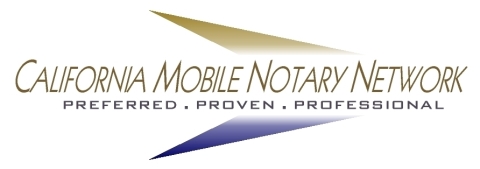Home Loans
Now consumers, borrowers, will have a way to make suggestions to improve their loan closing experience. CFPB is working hard at finding ways to protect the public.
In its ongoing effort to protect consumers in the mortgage lending process, the Consumer Financial Protection Bureau is
calling on the public to report their experiences and suggestions on how the loan closing process can be improved and how key consumer “pain points” associated with a closing might be remedied by market innovations and technology. Such technologies would include paperless processes and electronic signatures.
The CFPB announced on January 3 that it is seeking comments from industry professionals and other interested parties in order to test and study ways in which the closing process can be improved. In its announcement, the Bureau requested specific comments on 17 questions. Some of the questions are:
- What are the common problems or issues consumers face at closings?
- How long does the closing process take?
- What are the common errors encountered at closings?
- Do borrowers review loan forms beforehand?
- Where and to whom do consumers turn for advice during closing? Whom do they typically trust?
The Federal Register provides and interesting checklist for borrowers as well as mortgage brokers, lenders, banks on what to report.
Buying a home is often a consumer's single largest financial purchase. According to the latest numbers from the National Association of Realtors, the median price of homes purchased in the United States is now $207,000. By comparison, the median household income is about $51,000, according to the Census Bureau. It is crucial that consumers consider the numbers carefully before making this potentially long-term commitment, and closing is often their last opportunity to do so.
However, closing can be stressful and confusing for consumers. The CFPB plans to conduct several initiatives in order to test and study various ways in which the closing process might be improved. This information will help inform those initiatives.
The Bureau encourages comments from the public, including:
- Consumers;
- Mortgage lenders and loan servicers;
- Housing finance professionals;
- Brokers and service providers in the residential real estate industry;
- Real estate agents;
- Housing attorneys;
- Fair lending, civil rights, and consumer and community advocates;
- Providers of financial and housing counseling;
- Settlement closing agents; and
- Other interested parties.
Some of the topics and questions to think about:
1. What are common problems or issues consumers face at closing? What parts of the closing process do consumers find confusing or overwhelming?
2. Are there specific parts of the closing process that borrowers find particularly helpful?
3. What do consumers remember about closing as related to the overall mortgage/home-buying process? What do consumers remember about closing?
4. How long does the closing process usually take? Do borrowers feel that the time at the closing table was an appropriate amount of time? Is it too long? Too short? Just right?
5. How empowered do consumers seem to feel at closing? Did they come to closing with questions? Did they review the forms beforehand? Did they know that they can request their documents in advance? Did they negotiate?Show citation box
6. What, if anything, have you found helps consumers understand the terms of the loan?
7. What are some common errors you have seen at closing? How are these errors detected, if at all? Tell us about errors that were detected after closing.
8. What changes, diverging from what was originally presented at closing, often surprise consumers at closing? How do consumers react to changes at closing?
9. How, if at all, do consumers typically seek advice during closing? In person? By phone? Online?
10. Where and to whom do consumers turn for advice during closing? Whom do they typically trust?
11. What documents do borrowers usually remember seeing? What documents they remember signing?
12. What documents do consumers find particularly confusing?
13. What resources do borrowers use to define unfamiliar terms of the loan?
14. What, if anything, would you change about the closing process to make it a better experience for consumers?
15. What questions should consumers ask at closing? What are the most important pieces of information/documents for them to review?
16. What is the single most important question a consumer should ask at closing?
17. What is the single most important thing a consumer should do before coming to the closing table?
Feedback is a great to be updated on what happens in the field. Hopefully, data will bring a good base to fine tune the process at different levels.
Ref.
NNA |
Federal Register



